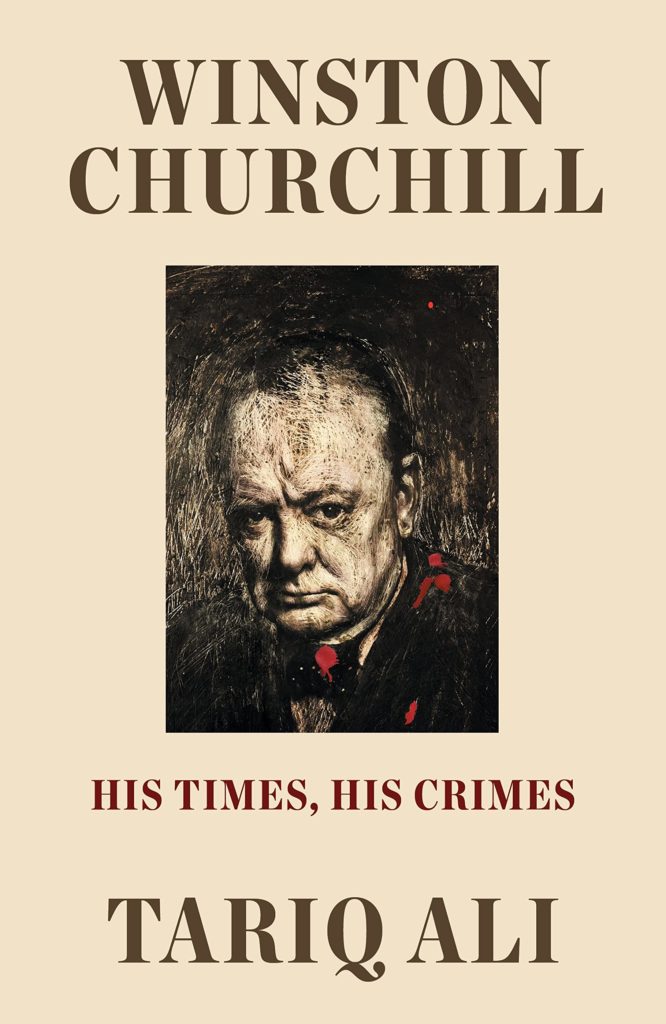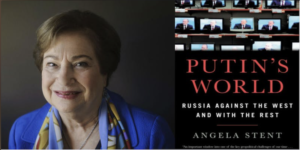
Bulletin #167 — May 2022
Dreary Times

April 30, 2022
Tariq Ali, Winston Churchill: His Times, His Crimes, Verso, 2022, 448 pages, £25. ISBN 978–1788735773
Review by ALASTAIR STEWART
One does not associate Tariq Ali with mild opinions. The outspoken writer is more an iconoclast than an activist. It is with this anticipation you pick up his book Winston Churchill: His Times, His Crimes. If nothing else, a Tariq Ali book should be interrogative and demanding and leave the reader singed. Sadly, this is not to be. Ali has attempted to wrap Black Lives Matter and Extinction Rebellion politics into a counter Churchill-narrative. Dealing with the three as one entity renders any reassessment prejudiced from the outset and is not helpful.
Ali starts with the cliché of asking if another book on Churchill is necessary and blames—you guessed it—“the Churchill cult” for “drowning out” all serious debate about their titular hero. If such a cult exists, it must have a voracious appetite for revisionism. Criticism dogged Churchill all his life, and there has never been a shortage of biographers queuing up to get in their punches since the man died in 1965.

2025 International Churchill Conference
Robert Rhodes James, the grandfather of Churchill revisionists, published Churchill: A Study in Failure, more than half a century ago. Since then we have had less responsible analyses from people on the left, such as Nicholson Baker, and people on the right, such as Pat Buchanan. Nigel Knight’s Churchill: The Greatest Briton Unmasked (2008) is at least a handy go-to for Churchill takedowns, and it has not even been a year since Geoffrey Wheatcroft published his longwinded attack.
Despite them all, Churchill remains the gold standard of crisis leadership and the example to whom people most often point these days when analyzing the actions of Volodymir Zelensky. Ali would do well, then, to reflect on why a broad spectrum of the political center has always admired Churchill and why Ali, a man of the far left, now finds himself in agreement about Churchill with far-right historian David Irving.
Few people—something Ali forgets of his alleged cult—would argue that Churchill’s early career was anything short of challenging, and, in many respects, a genuine disappointment. As for Churchill’s errors from 1940 onwards, there is not a serious biography of the man that does not address these directly. If he had read more deeply, Ali would know this. Instead he infers that anyone with a positive word to say about Churchill’s war leadership commits blind hagiography.
For his part, Ali offers nothing new beyond tediously attempting to connect some contemporary movements with the actions, decisions, and writings of a statesman who retired in 1955. There is no continuity, and the scope of the book is decidedly confused. Rather than making the case that Churchill was an imperialist murderer, Ali simply ranges ponderously through a time in which Churchill featured.
Ali intersperses Churchill’s alleged crimes with extensive discussion about British imperial policy, domestic tribulations of the early twentieth century, the Middle East, and the Cold War. There is an annoying conflation in his thinking: did Churchill make the British Empire, and was he therefore responsible for its crimes; or did the empire make Churchill a vessel for a nation of racists? In short, Ali fails to explore what made Churchill tick.
The frustration is curious, given some of Ali’s works to date. The Clash of Fundamentalisms (2002) was excellent in its scope of history, and The Obama Syndrome (2010) was a skilled takedown of the forty-forth president. This latest book, however, tries to straddle two very different approaches and comes out struggling. Ali may think that Churchill was a catastrophically conceited leader with a penchant for warmongering and white supremacy, but that does little—following his logic—to explain why Churchill is so beloved at home and respected by the world.
Stylistically, Ali engages in no playfulness, no impish joie de vivre at winding up the readers. There is no great challenge to Churchill’s reputation, but there is a decidedly dour execution. Readers will search in vain for a Christopher Hitchens-style smart bomb tossed into the middle of Churchill’s “cult” status. Iconoclasm is a boring affair when the author only seeks to scold and takes no delight in ruffling feathers.
Hitchens viewed Churchill as deserving his place in history but was not shy about dissecting his faults, foibles, and failures. The late author’s lively prose made this approach entertaining, even if disagreeable. Aptly the epilogue of Ali’s book consists merely of a cartoon of Churchill solemnly deflated. This might be Ali’s view, but it is also sadly apropos for a book that lacks the punch of its title.
Alastair Stewart is a Scottish public affairs consultant and freelance writer, whose work often appears in The Scotsman and other newspapers.
Subscribe
WANT MORE?
Get the Churchill Bulletin delivered to your inbox once a month.





